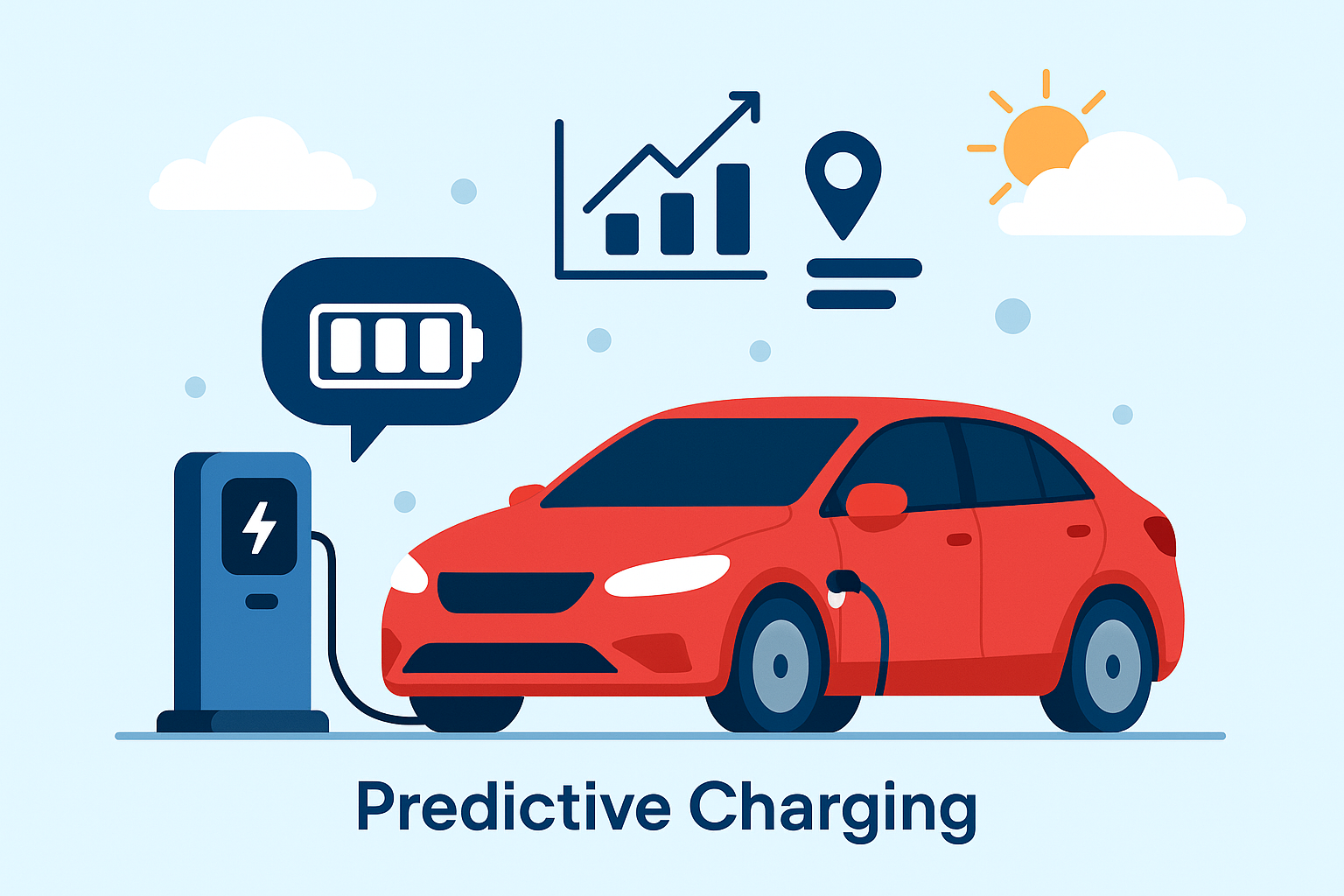Predictive Charging – AI-Driven Optimization for Smarter EV Charging

What is Predictive Charging?
Predictive Charging is a smart, data-driven strategy that optimizes when, where, and how EV charging takes place. It uses real-time factors such as grid status, user driving patterns, location data, and weather forecasts to anticipate energy demand and schedule charging sessions efficiently. This ensures that EV charging happens at the most convenient and cost-effective times, improving grid stability, reducing electricity costs, and maximizing renewable energy utilization. Predictive Charging is transforming the future of EV charging infrastructure by making it more intelligent, sustainable, and user-friendly.
Why Predictive Charging Matters
- Minimizes Grid Load: Anticipates peak usage times and delays charging accordingly
- Improves EV User Experience: Reduces waiting times and maximizes battery readiness
- Boosts Infrastructure Efficiency: Helps prevent charger bottlenecks and underutilization
- Enhances Renewable Integration: Aligns EV charging with solar and wind generation periods
How It Works
Predictive Charging systems analyze:
- Telematics: Vehicle GPS, battery SOC, route predictions
- User Profiles: Driving behavior, regular schedules
- Energy Signals: Grid load data, dynamic pricing, generation forecasts
- Machine Learning Models: Predict demand patterns, optimize load shifting
These inputs feed into centralized or edge-based control systems that can manage:
- Charger reservation and activation
- Load shaping across a network
- Smart grid participation
Key Technologies
- Smart EV Chargers with communication capabilities
- AI Platforms for analytics and control
- IoT Sensors for real-time data collection
- Mobile Apps for user interaction and alerts
- Cloud and Edge Computing to process predictions in near real-time
Applications
- Smart City Infrastructure: Balances charging across public networks
- Fleet Operations: Aligns charging with route planning and depot schedules
- Home Charging: Syncs with solar rooftop availability and TOU rates
- Highway Networks: Predicts charger demand and guides traffic
Benefits
- Lower Operational Costs: Uses cheaper energy windows
- Better User Satisfaction: Charges are ready without user intervention
- Sustainable Grid Load: Reduces reliance on fossil-fuel peaker plants
- Enhanced Resilience: Adapts dynamically to outages or load constraints
Use Cases
- EV Taxi and Delivery Fleets
- EVSE Network Operators
- Corporate EV Charging Management
- Distributed Energy Communities




